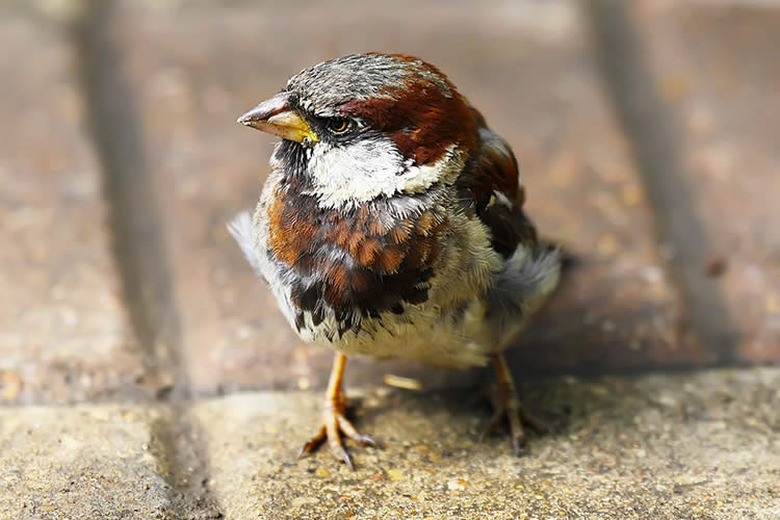Can Wild Birds Be Tamed And Kept As Pets?
"Taming" a wild bird may be a flawed word when considering a wild bird as a pet. A better word would be "habituate." Habituating means the bird accepts the presence of humans in such a way that they aren't spooked and fly away when a human is present. Several small songbirds can be habituated easily by placing a bird feeder near your house and filling it with feed. As the birds visit and revisit your feeder, they recognize your human presence as not being a threat. Amazingly, a few of those songbirds can be so habituated that they can be "trained" to take food right out of your hand! But make no mistake, these birds will remain wild.
Some of those common songbirds who are willing to become friends to humans include such species as the House Sparrow, the chickadee, the tufted titmouse and the Ruby Throated Hummingbird.
Other birds that will come close to humans but probably won't be trusting enough to be hand fed are the Cardinal, the Downey Woodpecker, the American Robin, the Purple and House Finches, the Goldfinch and the White-breasted nuthatch.
Consider All Scenarios
Not all birds can be habituated or tamed. The range of differences between bird genera can be rather vast and you have to consider all scenarios such as birds bred in aviaries with very little human contact or parent raised birds. Doves and starlings will usually go about their own business if left to themselves but if food is offered, they will come and become persistent in their begging. This however, is not taming them.
Association
Other species like certain parakeets, rails and babblers shall keep humans at a safe distance and never will attempt a close approach. Situations change when baby birds are raised by human beings. Some instances have hand raised baby birds who were released and cared for by staff, and even visitors, follow people all around because they now associate people with feeding time or getting food.
Tame into Adulthood?
So, will these hand raised baby birds remain "tame as they become adults"? No, not all of them. The Cockatiel and the Cockatoo will remain tame all of their life but certain breeds of parakeets and bubuls must have a maintained "tame-visit" through daily human contact or they'll revert back to their wild state and become suspicious whenever a human being is near.
Bird Personalities Differ
Avian personalities differ even within the same species. As birds age they may become more standoffish while others will continue their begging behavior (like the common pigeon) throughout their entire life!
Emotional Bonds
Some birds will develop an "emotional" bond with human beings. Emotional meaning, not dependent on an attachment that equals a material advantage, but a bond with a human that the bird prefers rather than bonding with other birds. When birds are raised away from their species, they sometimes transfer attachments from the flock to their human friend. This is not transactional but emotional. Parrots may follow their favorite human around and even suffer discomfort to be with them.
Warning System
Parrots (and crows) have a distinctive warning scream in place in the wild. So if they see something they think may be dangerous like an approaching dangerous animal, the bird will scream or even swoop down in front of the human, even exposing his own self to danger to get the message across! As a last resort, the bird may even bite the human, because in the wild a bite upon a fellow bird in danger may be enough to shock that bird to flee and take flight. This bird-brained logic may be applied by pet birds when they believe their human companions are in danger. When you think about this action in a derogatory sense – it's not so "bird-brained" after all!
By Tom Matteo
References
Quora
Bird Ecology Study Group
About the Author
Tom Matteo has been a freelance writer since 1992. He specializes in hardware and software reviews for computers and gaming systems, and occasionally writes about such topics as animal behavior and care. Tom resides in Bethlehem, PA with his wife Tina and his beloved cockapoo, Angel.
